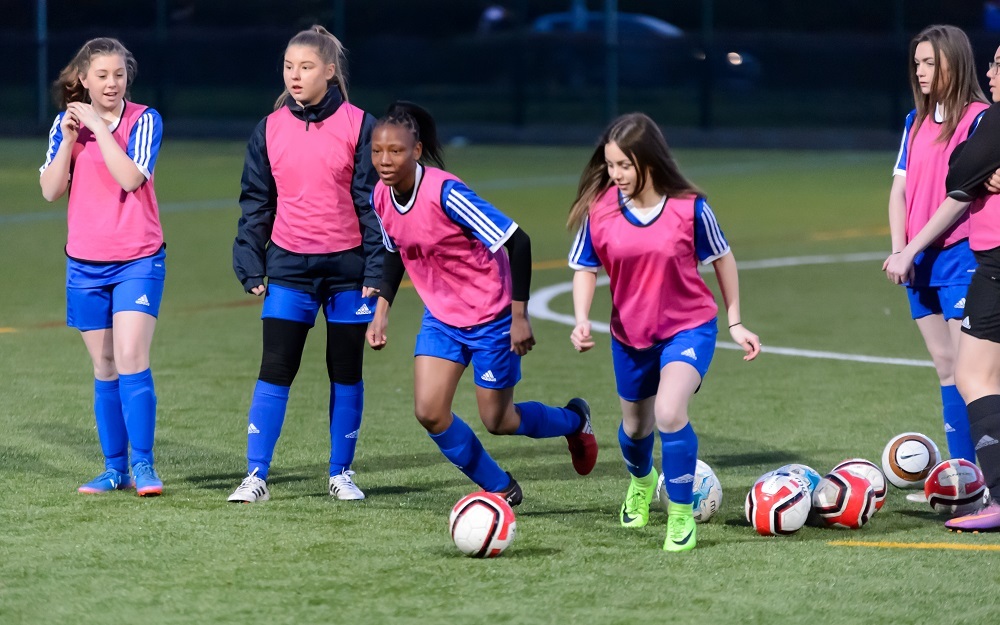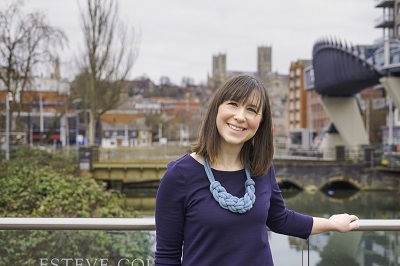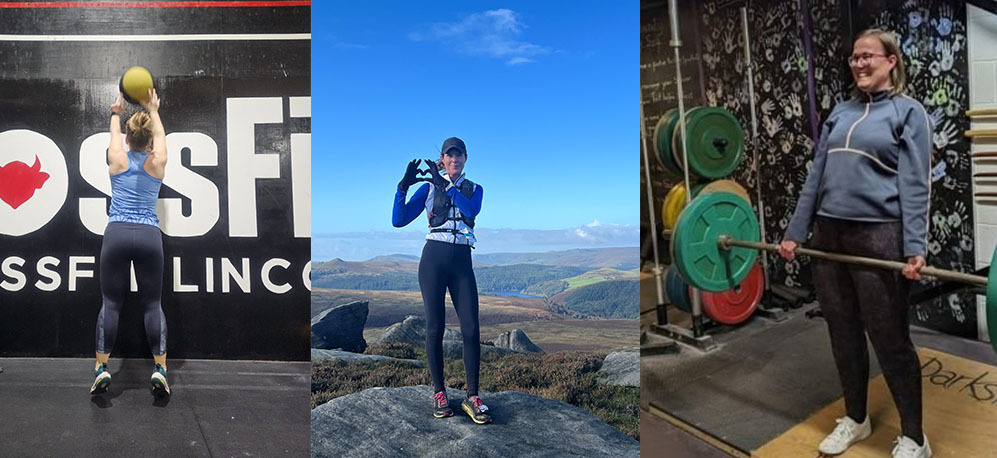Celebrating girls’ and women’s sport on International Women’s Day

To mark International Women's Day, Professor Hanya Pielichaty has written a blog for us on the topic of women and girls' participation in sport and physical activity, celebrating the progress that has been made in this area, but also looking at the continued need to push for equality and equity for women and girls.
International Women’s Day marks a date in our cultural calendar to celebrate, reflect upon and provide a call for action regarding issues of gender (in)equality, in/exclusion, and feminism. The world in which we live is gendered. It is shaped and modelled by our shared practices, values and beliefs and sport and physical activity are influenced by what goes on around us. Women’s participation in sport and leisure over the centuries has been driven by socio-economic status, location, privilege and other identity markers (such as ‘race’/ethnicity and dis/ability for example). Access to, and enjoyment of, contemporary sport is of political, economic and social importance and it is important to see how this area has developed.
The Rise of Women and Girls in Sport
When I think back to my own experiences of childhood sport, and particularly football, there were many social and practical issues that I had to navigate in order to play. I absolutely loved football and played for over 20 years but my experiences of access and development were gendered (see Pielichaty, 2021).
One significant barrier was the hangover from the (now lifted) FA ruling preventing girls aged 11 and over from playing organised football with boys. I was also reliant on helpful and supportive parents, teachers, coaches and friends to ensure I could play and enjoy the sport. I always remember the county trials for football and netball being held on the same day; did they not consider a girl could be good at both football and netball?
Now there are national and regional policies, practices and action plans in place to ensure participation is not (only) reliant on the goodwill gestures of others. There has been a significant rise in girls playing football which has continued to grow following the success of the Lionesses internationally. The 2023 Women’s World Cup was important to both girls and boys in terms of fostering a sense of pride and happiness (Women in Sport). There are now double the number of registered girls’ football clubs in England compared to 2017 (BBC). Barclays' Here for Every Goal report highlights the significant gains made in both the elite and grassroots level of the game and in particular refers to the positive skills football fosters in young players.
In cricket, England women now receive the same match fees as the national men’s team (The Guardian, 2023) this followed a recommendation (section 6.6.25) made in the Holding Up a Mirror to Cricket report. The number of women and girls playing contact rugby has upturned by over 10,000 players since 2013 and England Rugby’s Every Rose 2021-2027 action plan outlines ambitious proposals to continue this upward trajectory. The 2023 Netball World Cup instigated increased engagement in the sport and visits to England Netball’s ENgage website were up 269% during the tournament matched by huge digital growth and influence.
The government have also turned their efforts to improving the opportunities for girls in physical education (PE) and sport, agreeing to invest £600 million in PE and £22 million for School Games Organisers following England’s European victory. The report output from the government-led review, chaired by former international player, Karen Carney has also sought to provide clear recommendations to improving the sporting landscape for girls and women. I wrote a summary of the review last summer and in December last year the government agreed to implement all recommendations outlined in the Raising the Bar report. Furthermore, we are awaiting the outcome of the Department of Culture, Media and Sport’s women’s sport inquiry that sought to explore and critically examine the current sporting environment. I was invited as a witness to share oral evidence with the inquiry after submitting written evidence to parliament several months earlier, you can read more about this on the Lincoln Policy Hub.
Continued Struggles for Equality and Equity
Despite the tremendous improvements made to professional and grassroots level sport for women and girls there continues to be problems. The Women in Sport Impact Report claims that young girls (from 5 years) don’t feel like they belong in sport and 1.3 million of those who once did love sport become disengaged by the time they are teenagers.
The Daring to Dream report (2023) shows a ‘dream deficit’ whereby 52% of boys and only 29% of girls dream about being a top sportsperson in the future. Boys continue to be more active than girls across the board (Sport England) and there is a 22% gender gap in team sports participation. It remains the case that boys are encouraged into sport sooner than girls, creating a gender skills gap, causing some girls to believe that boys are innately suited to sport (Women in Sport). Furthermore, 35% of girls say they feel they are not expected to be good at sport, compared to 4% of boys (Daring to Dream report).
Gender inequality in sport connects with interwoven imbalances whereby discrepancies across elite sport, grassroots sport, education, health, media and governance are all interrelated. The sports sector continues to be male-dominated in terms of governance and leadership and women continue to be in the minority in sports journalism, sports finance and sports business scholarship. Despite women’s sport media coverage nearly tripling in recent years (now 15%) it still remains low by comparison. So how do we ensure the future is bright for all?
Towards an Inclusive Future
Making sport more inclusive is not simply a ‘nice to do’ or an equality and diversity 'tick box exercise' but it makes moral and financial sense. Deloitte predicts that this year the revenue brought in by women’s elite sport will push the $1 billion mark for the first time. Fair Game’s commercial case for gender equality report shows that diverse boards operate better, make good decisions and increase value.
At grassroots level there are things we can do to continue this positive momentum. My previous blog provides 10 ways to tackle gender inequality in sport considering allyship, intelligence gathering, resourcing and responsibility. Women in Sport (2023) explain better facilities are required, girls’ needs must be understood, and interventions to alleviate fear of judgment and surveillance are required. It is important to remember that tackling inequalities is everyone’s business; it is important to work together as team. The journey to gender equality is the biggest team sport we all need to be part of.
You can find out more about International Women’s Day by watching this video.
About the author

Hanya Pielichaty is Professor of Sport, Gender and Inclusive Education at the University of Lincoln, and an Active Partnerships National Organisation Board Member.
Find out More
Please take a look at Professor Hanya Pielichaty latest book, Gender, Sport and Society: An Introduction if you would like to learn more on the topic of this blog. She will also be delivering a public lecture on the 20th March at 5pm at the University of Lincoln – please email EGI@lincoln.ac.uk if you would like to come.












